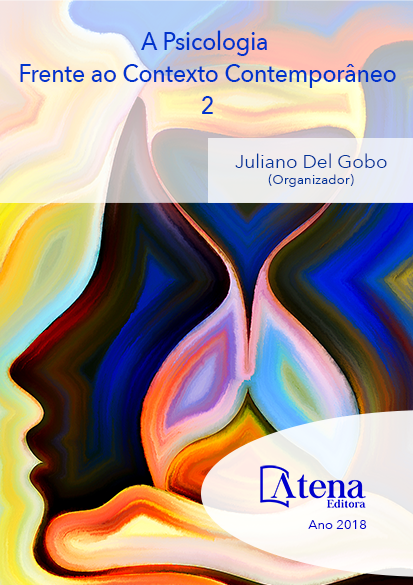
REGRAS EMOCIONAIS: UM ESTUDO CORRELACIONAL COM TRABALHO EMOCIONAL E BURNOUT ENTRE TRABALHADORES EM SAÚDE
O trabalho em saúde apresenta
indicativos de sofrimentos causados pelas
regras que orientam as atividades, precarização
das relações de trabalho, baixa remuneração,
turnover, gestão inadequada do trabalho e
dos trabalhadores, e sobrecargas diversas.
O presente estudo teve por objetivo analisar
o quanto os trabalhadores percebem regras
emocionais que orientam a sua atividade, as
demandas de trabalho emocional prevalentes
e a prevalência de fatores de burnout obtidas
do Maslach Burnout Inventory (MBI). Também
foram feitas análises de regressão linear
buscando avaliar possíveis relações preditoras
entre as regras emocionais percebidas na
organização, demandas de trabalho emocional
e fatores de burnout. Os resultados apontaram
que: as regras emocionais que evitam agressões
no trabalho são as mais importantes, quando a
hipótese era na direção de regras emocionais
percebidas na organização; que as emoções
genuínas são as formas de relacionamento
emocional mais empregada ante as demandas
emocionais, quando a hipótese estabelecida
apontava o uso de ação superficial; e que o
fator de burnout obtido do MBI é o engajamento
no trabalho, quando era esperada a prevalência
dos desgastes oriundos do trabalho. Quanto
às relações lineares, verificou-se que as regras
emocionais percebidas no trabalho preveem
o uso de ações profundas nas demandas de
trabalho emocional, preveem inversamente
o desgaste físico e emocional no trabalho e
diretamente o engajamento do trabalhador.
Desta forma, embora a literatura aponte
resultados negativos para o uso de regras
emocionais oriundas da organização, os
resultados deste estudo permitem afirmar que
elas preveem uma contribuição para mais bemestar no ambiente laboral. Os resultados obtidos
requerem novos estudos para a sua ratificação,
sendo que é necessário considerar que os
dados coletados por meio de auto relato implica
em aspectos subjetivos que podem interferir na
precisão dos construtos utilizados, o que ocorre
em estudos do comportamento humano.
REGRAS EMOCIONAIS: UM ESTUDO CORRELACIONAL COM TRABALHO EMOCIONAL E BURNOUT ENTRE TRABALHADORES EM SAÚDE
-
DOI: 10.22533/at.ed.1791819126
-
Palavras-chave: burnout, regras emocionais, trabalho emocional, emoções no trabalho.
-
Keywords: burnout, emotional rules, emotional work, emotion at work.
-
Abstract:
Health work presents indicative of suffering caused by the rules that guide
the activities, precariousness of labor relations, low remuneration, turnover, inadequate
management of work and of the workers, and diverse overloads. The present study
aimed to analyze how workers perceive emotional rules that guide their activity, the
prevalent emotional work demands and the prevalence of burnout factors obtained from
Maslach Burnout Inventory (MBI). Linear regression analyzes were also carried out to
evaluate possible predictive relationships between the emotional rules perceived in the
organization, emotional work demands and burnout factors. The results pointed out
that: emotional rules that prevent workplace aggression are the most important, when
the hypothesis was in the direction of emotional rules perceived in the organization;
that genuine emotions are the forms of emotional relationship most used to emotional
demands, when the established hypothesis pointed to the use of superficial action; and
that the burnout factor obtained from MBI is engagement at work, when the prevalence
of work-related injuries was expected. Regarding linear relationships, it was verified
that the emotional rules perceived in the work predict the use of deep actions in the
demands of emotional work, inversely predict the physical and emotional exhaustion in
the work and directly the engagement of the worker. In this way, although the literature
points out negative results for the use of emotional rules from the organization, the
results of this study allow to affirm that they predict a contribution for more well-being in
the work environment. The results obtained require new studies for its ratification, and
it is necessary to consider that the data collected through self report implies subjective
aspects that may interfere in the precision of the constructs used, which occurs in
studies of human behavior
-
Número de páginas: 15
- Rui Maia Diamantino
- Laila de Carvalho Vasconcelos
- Rosemilly Rafaele Santos da Silva


